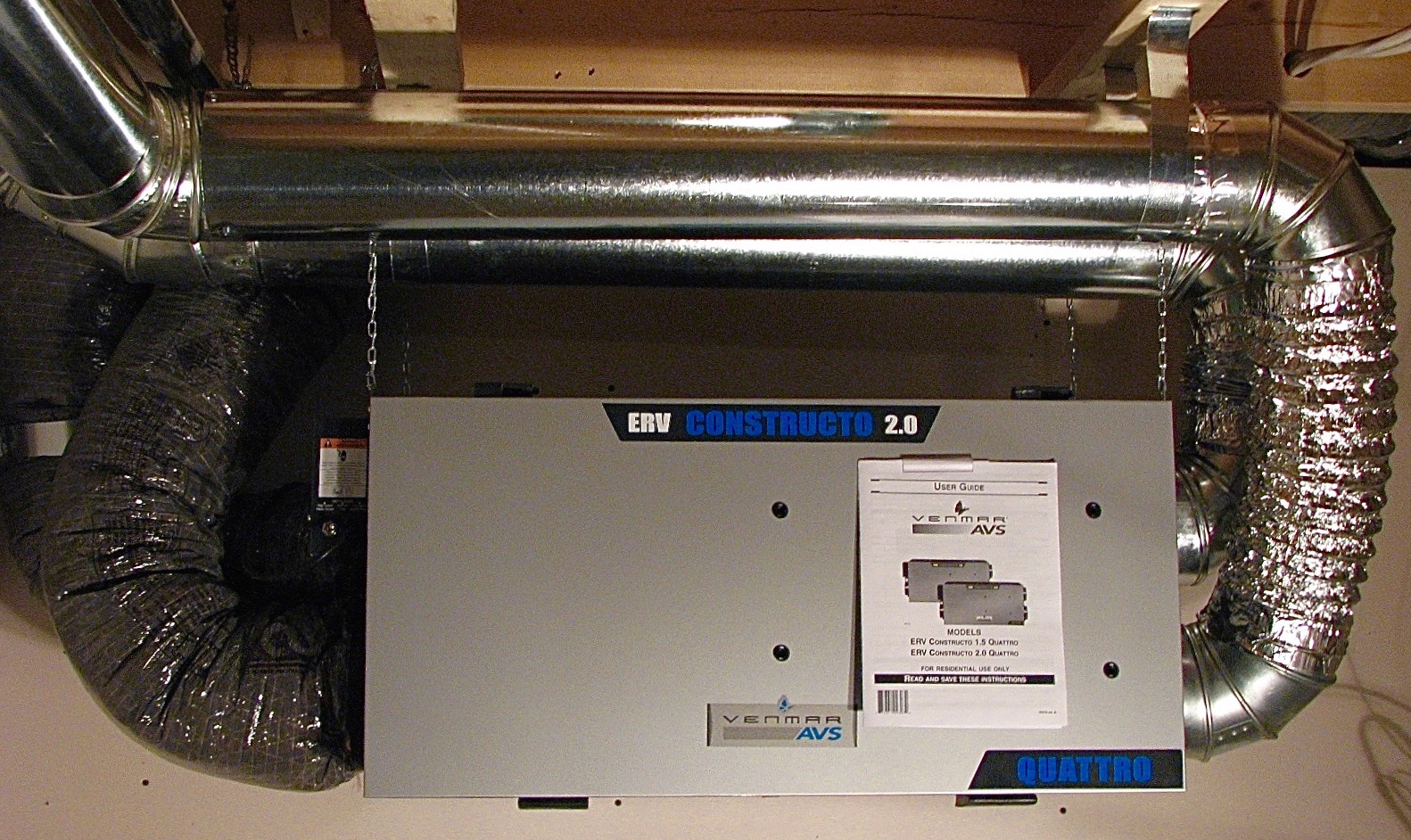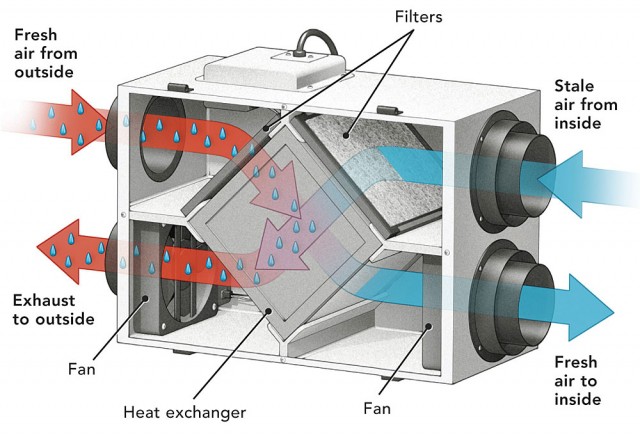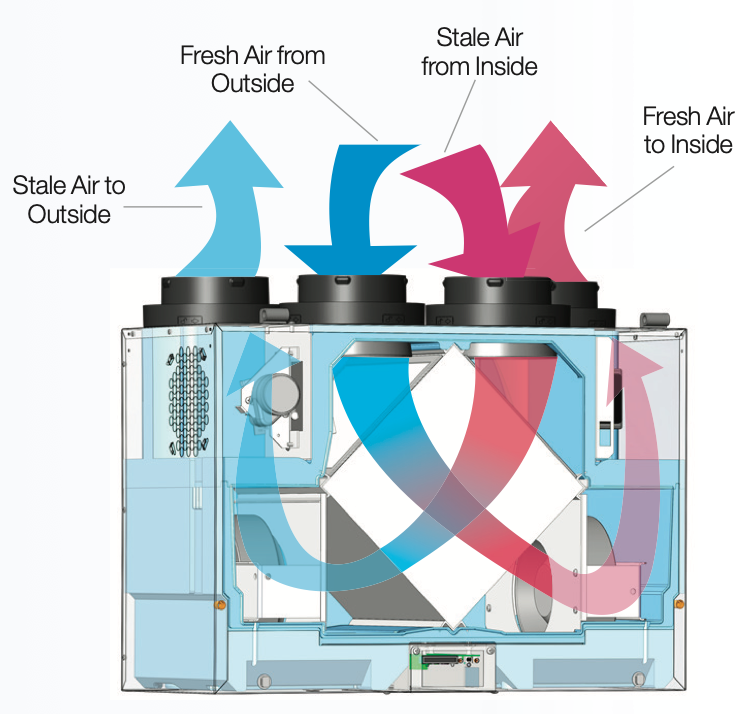HRV Shopping Tips: What Features to Look For
Wiki Article
Exploring the Perks of Heat Recovery Ventilation for Energy Effectiveness in Homes
Heat Recovery Ventilation (HRV) systems provide home owners a practical approach to boosting power performance. By redeeming warm from outward bound air, these systems can significantly reduce heating & cooling expenses. In addition, they supply a consistent supply of fresh air, improving interior air high quality and comfort degrees. As homeowners consider sustainable alternatives, recognizing the subtleties of HRV systems ends up being progressively vital. What variables should one examine before making such a financial investment?Comprehending Heat Recovery Ventilation Solutions

Just How HRV Enhances Indoor Air Quality

Power Financial Savings: The Financial Benefits of HRV
Maximizing power performance, heat recovery ventilation (HRV) systems offer significant economic benefits for home owners. By recuperating and reusing warmth from exhaust air, HRVs substantially reduce heating & cooling expenses. This innovation can cause power cost savings of as much as 30%, depending upon climate and use patterns. House owners commonly observe minimized energy expenses shortly after installation, making HRVs an economically sensible financial investment with time. Furthermore, numerous areas supply incentives or refunds for energy-efficient upgrades, even more boosting the financial charm. As energy rates proceed to rise, the cost-effectiveness of HRVs comes to be significantly clear. In general, the incorporation of HRV systems not just promotes power performance however additionally adds to long-lasting monetary cost savings for households.The Environmental Impact of Heat Recovery Ventilation
A substantial environmental benefit of heat recovery ventilation (HRV) systems depends on their ability to minimize total energy consumption. By redeeming warm from exhaust air and moving it to inbound fresh air, HRV systems minimize the demand for energy-intensive heating and cooling down techniques. This reduction in energy demand contributes to reduce greenhouse gas my sources discharges, as less nonrenewable fuel source is needed to preserve comfortable indoor temperatures. Furthermore, HRV systems improve interior air high quality by successfully exchanging stagnant air with fresh outside air, lowering dependence on mechanical air conditioning systems that can damage the setting. In general, the implementation of HRV systems sustains lasting living methods and straightens with global efforts to fight climate modification by advertising energy efficiency in domestic settings.
Selecting the Right HRV System for Your Home
Exactly how can home owners guarantee they pick the appropriate heat recovery ventilation (HRV) system for their demands? They should assess their home's dimension and layout, as these elements influence airflow demands. Next off, reviewing the system's performance rankings is crucial, as higher ratings show far better performance and power savings. House owners need to additionally think about setup and upkeep costs, comparing different brands and versions for value. In addition, it is very important to review noise degrees, as some systems operate more silently than others. Consulting with a/c professionals can supply customized suggestions based on particular home conditions. Analyzing customer evaluations and guarantees can help in making a notified choice, making certain that the picked HRV system successfully enhances interior air quality and power efficiency.Frequently Asked Inquiries

How Usually Should I Tidy or Keep My HRV System?
The regularity of cleaning or preserving a heat recuperation ventilation (HRV) system typically relies on usage and ecological elements. Usually, it is recommended to perform upkeep every 6 months to assure peak performance and air quality.
Can HRV Equipments Help Decrease Humidity Levels Inside?
HRV systems can successfully decrease interior humidity degrees by trading stagnant, damp air with fresh, drier air from outside. HRV Heat Recovery Ventilation. This procedure helps keep a balanced interior setting, enhancing comfort and protecting against moisture-related issues
What Is the Lifespan of a Typical HRV System?
The life expectancy of a common heat recovery ventilation (HRV) system differs, usually lasting in between 10 to 15 years. Regular maintenance can extend its effectiveness and functional life, making certain peak efficiency throughout its usage period.Exist Any Kind Of Sound Problems With HRV Solutions?
Noise interest in HRV systems can develop, specifically from fan this operation. Nevertheless, lots of modern devices are designed to minimize sound levels, guaranteeing they run quietly while keeping effectiveness, which attends to potential disturbances in living settings.Can I Install an HRV System Myself, or Do I Need an Expert?
The individual blog here contemplated whether to install the heat recovery ventilation (HRV) system directly or hire a professional. Typically, while DIY installation is possible, expertise warranties proper functionality and compliance with neighborhood building regulations, improving system effectiveness.Report this wiki page